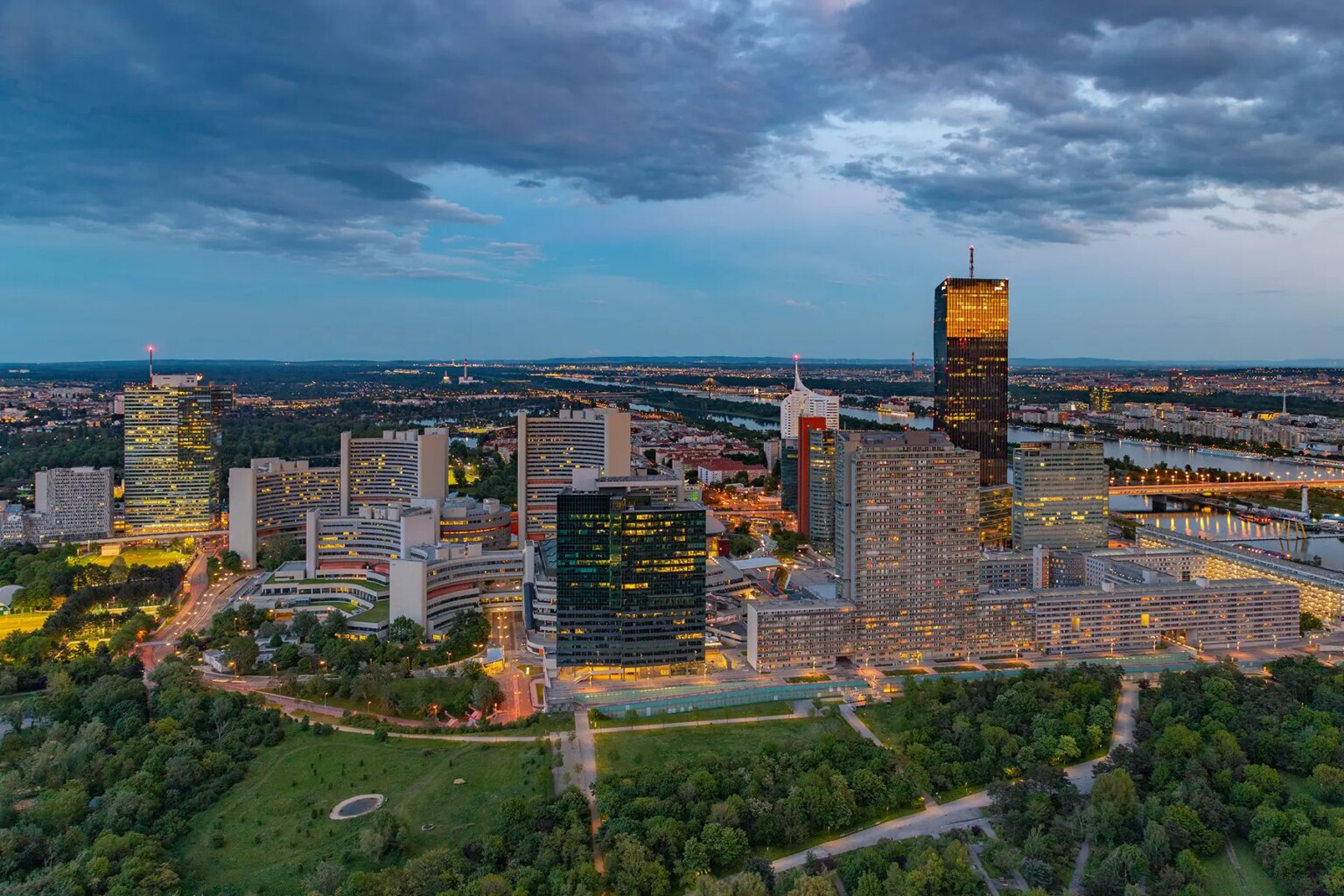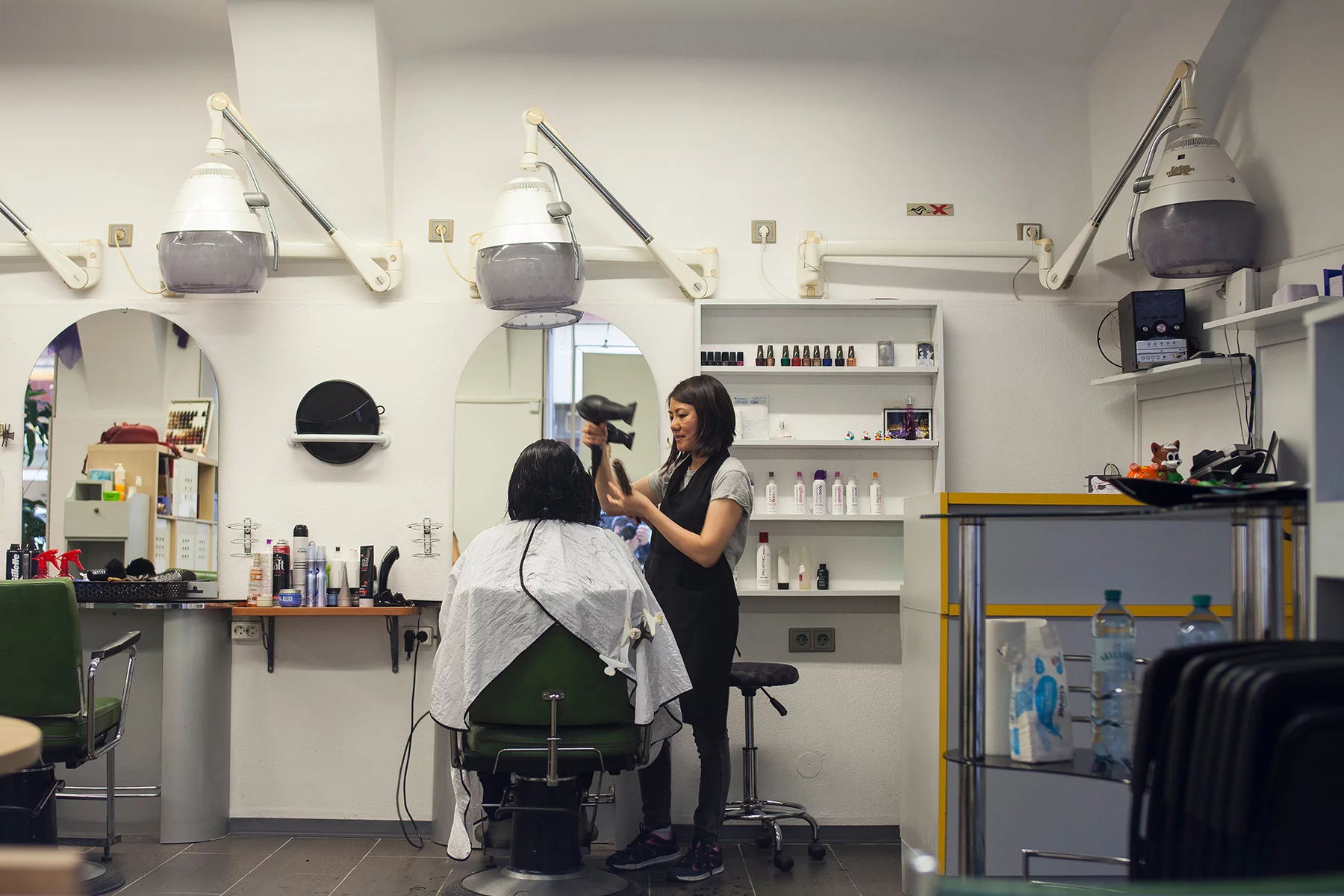Finding a job in Austria when you live overseas can be a daunting challenge. However, a good place to start is by researching the current trends in the job market and reading tips on how to find an expat job. Additionally, you can sign up with recruitment agencies in Europe to find suitable matches. If you have experience in the classroom, teaching English is another great way to break into the world of work in the country.
Whichever route you decide to take, this helpful guide provides everything you need to know about CV and job interview tips in Austria, including:
- Applying for a job in Austria: what to expect
- Writing a CV in Austria
- Cover letters in Austria
- Job interviews in Austria
- What to expect in an Austrian job interview
- Dress code and appearance for Austrian job interviews
- Questions to expect in an Austrian job interview
- Questions to ask in an Austrian job interview
- When are the salary and benefits discussed during the hiring process?
- Tips for job interviews in Austria
- Online and phone interviews in Austria
- Qualifications in Austria
- After the job interview in Austria
- Help and support available for CV and job interviews in Austria
Resume.io
Trying to land the job that will take you on your next big adventure? Make sure your application is top of the pile with Resume.io's online resume builder. They provide resume templates, cover letter help, and more, making job applications effortless. Make it to the next round with Resume.io.
Applying for a job in Austria: what to expect
Before you begin your job hunt in Austria, it’s important to know how the hiring process works. To start with, jobs will typically be advertised in German and your job application should also be in this language. Just like in other countries, you’ll be able to read about the day-to-day tasks and duties of the role in the job description as well as the type of candidate the employer is looking for in terms of experience and qualifications.

The best way to start your job hunt is by researching as much as you can about the sector and types of roles you are interested in. You might also want to read up on the labor laws and unemployment in Austria, and, if you are female, women in the workplace in Austria.
In general, you’ll apply for the job with a CV and cover letter. This will hopefully be followed by an interview for the role which might involve several people or just your main boss. If all goes well, you might even be asked to attend a second interview.
When going through this process, it’s useful to know that Austrian employers are not risk-takers by reputation and like to ensure they are making the right decision by rationally weighing every decision. As a result, this can cause the application process to be longer than you might expect in your home country.
Writing a CV in Austria
Of course, the journey to landing your dream job begins with your Lebenslauf (CV), and these useful tips will outline how to lay it out so that it fits the criteria that Austrian employers are looking for.
Austrian CV structure
When applying for a job in Austria, your CV needs to be written in German. It should be focused and to the point. Make sure to keep only the most relevant info; remember, you can elaborate later on in the interview. Your CV should also be kept to one to two A4 pages.
Your CV should begin with your Persönlichen Daten (personal details), including your first and last name, address, and phone number. You should also add your date of birth. Make sure to include a photo as well, but note that this is only as a form of identification. This should ideally be a passport photo – not your best poolside Instagram snap!

Next up, you’ll want to detail your education history and any military service. You should follow on with your Besondere Kenntnisse (special knowledge and skills). For instance, this may include any spoken languages, coding ability, driving license, and public speaking certificates.
Next, you should provide information on your career history along with dates. Under each role, you can include a brief description of your abilities and experiences.
Finally, you can finish with any other notable activities or clubs you are a member of. And to conclude, CVs in Austria are typically signed and dated at the bottom, so don’t forget to do this, too.
Tips on writing an Austrian CV
- Keep your CV clear and focused
- Use a passport photo in the personal information section
- Add certifications achieved through training
- Include any special skills that set you apart
- If you are handing over a paper application, invest in a stationery folder to add a professional look. Note that some firms may request email applications only.
Austrian CV templates
Fortunately, there are several websites that provide free CV builders and templates for job-seekers in Austria. Here are a couple that you may find helpful when putting together your CV and snagging that job interview:
Cover letters in Austria
When applying for a job in Austria, it is common to include a cover letter with your CV. In Austria, a cover letter is actually considered more important than a CV as it refers to the present and the future; whereas CVs generally refer to the past. Therefore, think of this as your time to shine.
You should design your cover letter with the purpose of making someone want to meet you in person. While your CV lays out all the facts and information an employer needs to know, your cover letter should exhibit more of your personality and individual style. It should still be formal but try to make it personal and specific to each job you are applying for. And once again, it should be written in German.

To begin with, add your phone number and include the international access code, as well as your email address. When addressing an unknown person by letter, start with the greeting ‘Sehr geehrte Damen und Herren,’. But whenever possible, find the name of the individual and use that instead.
Following this, state the job you are applying for and how you came to hear about the position. Next up, include an introductory paragraph about yourself and your achievements. Remember, in Austria, professional and academic titles carry a lot of weight. Therefore, be sure to include information about any of these. You can also include your salary expectation and date of availability if you choose.
After this, your cover letter should explain your present situation and your plans for the future. Here you can include what you can offer your prospective employer, your familiarity with Austrian protocol, and why you are the right person for the job.
To finish, ask for an invitation to interview and the opportunity to wow them in person. And don’t forget to add the date and your signature at the bottom.
Phrases and accented letters
There are several phrases that are commonly used in cover letters, no matter where you are applying for a job. These can be helpful when writing your cover letter in Austria, too:
- Sehr geehrte Damen und Herren: Dear Sir/Madam
- Bald von Ihnen zu hören: I look forward to hearing from you soon
- Bitte antworte mir bald: Please write back soon
Job interviews in Austria
Now that you’ve submitted your top-notch CV and cover letter, and landed a job interview in Austria, it’s time to shine a spotlight on yourself and truly wow your future employer.
What to expect in an Austrian job interview
Naturally, job interviews in Austria will differ depending on what type of job you are applying for, and at which level. For instance, you might meet your soon-to-be boss in the interview or you may interview with a lower level employee initially.

It’s possible that you will be asked to interview a second time, depending on the role and whether you’ve met top-level managers or not. Generally speaking, you can expect a job interview to last between 30 minutes and one hour.
Dress code and appearance for Austrian job interviews
Typically, Austrians maintain a formal work wardrobe. Therefore, you should dress formally and appropriately. In general, women wear a suit or dress and men a shirt and tie. Make sure you are also well-groomed with proper professional footwear.
If you are on a tight budget but need to find suitable attire to wear to a job interview, Klosterneuburg hilft may be able to help. The charity supports asylum seekers and underprivileged families with free clothing and school supplies and may be able to help low-income job hunters, too.
Questions to expect in an Austrian job interview
Here are some typical questions that you may be asked during a job interview in Austria:
- Tell me about a time when you set a goal and weren’t able to meet or achieve it
- Explain your strengths and weaknesses
- Give me an example of when you showed initiative and took the lead
- Tell me about a time you were able to successfully deal with another person even when that individual may not have personally liked you (or vice versa)
- Give me an example of a time when you used your expertise to solve a problem
- Do you already live in Austria? If not, when will you arrive?
- Do you need a visa or work permit to work in Austria?
- Why do you want to move to Austria?

It’s a good idea to prepare responses to the questions above and any others you anticipate. Just remember, you want to show your potential employer that you would be of value to the company on the basis of your specific qualifications and character.
Questions to ask in an Austrian job interview
Make sure you have a handful of good questions to ask about the job you’re applying for. This will show you are excited about becoming a part of the company.
Of course, it’s important to research the company and ask them to elaborate on different aspects that you have learned about. This might include certain processes, software, or hardware they have implemented. Discussing the different technology they use can also help you understand the role better. It will also show that you are interested in getting up to speed with it, or that you already have experience with certain software in the past.
To finish, don’t forget to ask, “When can I expect to hear from you?”.
When are the salary and benefits discussed during the hiring process?
When it comes to talking money, give some thought to what you need to earn, and what you would like to earn. However, don’t mention an exact amount as you want to be able to negotiate an offer. It’s important to avoid raising the issue of salary or benefits too early in the process. This will likely happen at a later stage of the job interview or during the second interview if you have one.
Tips for job interviews in Austria
- Learn as much as you can about your employer and the position ahead of time.
- Ensure you address the interviewer by their proper title. This is very important in Austria.
- Importantly, be punctual. Arrive on time or a few minutes early.
- Be friendly with everyone you meet, whether it be the security guard or the administrative individuals. Politeness is important in Austria.
- Austrian employers are looking for confidence and good manners, so maintain eye contact with your prospective employers throughout the interview.
- At the end of the job interview and before leaving, thank everyone present for the interview and shake their hands.
Online and phone interviews in Austria
Nowadays, when recruiting long-distance in Austria, it’s common for first interviews to take place over a video call. Online interviews can have their challenges, but here are some tips to ensure a smooth first encounter.

- Test your audio and visual equipment, as well as any links, in advance
- Plan your virtual background and ensure it looks clean and professional
- Dress appropriately in a smart shirt
- Be punctual
- Prepare a few lines to introduce yourself
- Plan in advance ways to build rapport with your interviewer
- Have a glass of water nearby
- Ask relevant questions
- Use humor and smile as much as possible when speaking
- Stay positive and try not to talk negatively about ex-employers
- Startups and smaller businesses may have a more relaxed environment, so try to find out as much as possible beforehand so you can try to mimic their approach
Qualifications in Austria
When applying for jobs in Austria, you might want to know how your qualifications hold up in the country. A good place to start is The National Academic Recognition Information Centre (NARIC) and ENIC-NARIC.
Meanwhile, the Federal Ministry for Labor and Economy (BMAW) can answer any questions about the recognition of international university diplomas in Austria. Typically, this validation is enough to prove and use your qualification in the Austrian labor market. Regulated professions such as doctors, teachers, and architects will check essential skills, such as proficiency in the German language, separately.
Should you need to obtain new qualifications in Austria, you’ll be pleased to know that the country has many excellent universities. In addition, you can also try out online learning to gain necessary certificates before arriving. Platforms such as Coursera are a great place to start.
After the job interview in Austria
After your job interview, make sure you write a thank you letter or email. Austria has a formal business culture and as such, thank you notes and acknowledgments are highly appreciated. Subsequently, you should follow up by letter, email, or phone call. In Austria, this is seen as an indication of your interest in the position.
Once again, it’s important to remember that Austrians like to take their time to make decisions. Therefore, don’t be surprised if you have to wait longer than expected to hear back.

In the meantime, keep up with the job hunt. You can try targeted networking on LinkedIn and read everything you can about global business etiquette and finding work abroad.
If you are offered a role and accept it, you can typically agree on a probationary period with your employer before starting the job. One month of probation is the maximum for employment relationships in Austria. However, the limit is three months for apprenticeships.
Help and support available for CV and job interviews in Austria
- You can find government information about working as a foreigner in Austria at Oesterreich.gv.at
- For help preparing your CV and getting ready for your job interview in Austria, check out Virtual Vienna
- You can learn about the ins and outs of working in Europe at Welcomm







